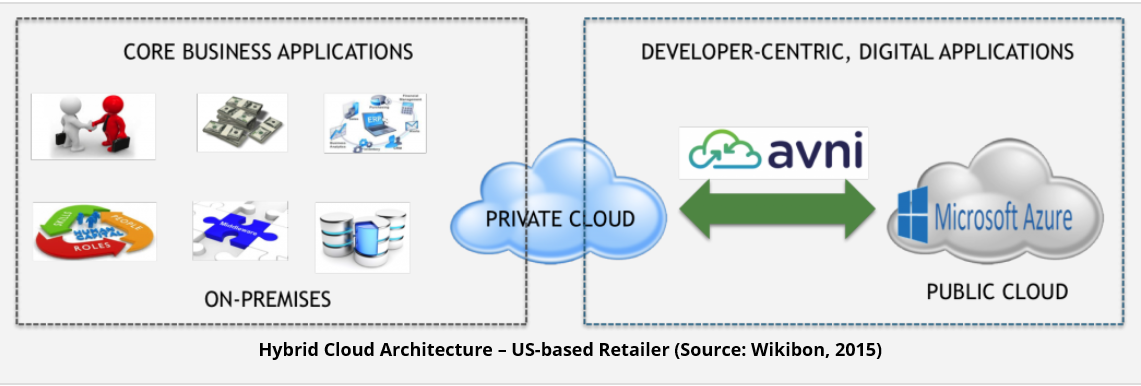 NEWS
NEWS
 NEWS
NEWS
 NEWS
NEWS
Hybrid clouds are increasingly being seen as a solution to meeting the increased agility demands of business transformation. However, writes Wikibon Cloud Analyst Brian Gracely, companies face challenges in managing a true hybrid cloud that can support easy movement and bursting of applications and data between the private and public clouds.
In his latest Professional Alert, “Digital Business Transformation Drives Retailer to Build Hybrid Cloud,” Gracely tells how an unnamed retailer with more than 600 stores operating in all 50 U.S. states successfully implemented a hybrid cloud to solve agility and resource availability problems common to many businesses.
While the U.S. Department of Commerce shows that only 7.4 percent of retail sales are completed online, many consumers do their research on the cloud before going to a store. This makes digital retail, including mobile as well as Web-based shopping, more important to the success of retailers than just the sales figures indicate.
Retailers need to integrate new functionality into their websites, in-store kiosks, mobile apps and social media presence to address this customer behavior. However, these digital products require frequent updating, and many are linked to short-term events. One major issue was the time it often takes to add infrastructure to support these products on premise. In some cases, by the time a new server and storage can be acquired and installed the opportunity passes, leaving the business with a missed opportunity and IT with a capital expense for resources that now might sit idle.
The retailer identified hybrid cloud as the best solution for these agility issues. The hybrid cloud would allow it to develop and in some cases deploy new applications on a public cloud, in this case Microsoft’s Azure, and migrate the finished system in-house while keeping sensitive data on premise. It will also provide greater flexibility for managing in-house infrastructure. The challenge was to make the two clouds work as one so that applications and data could move easily from one to the other.
After researching several options, the retailer selected the Software Defined Cloud solution from Avni Inc., to solve this issue. This allows the retailer’s team to view and manage applications from a single portal, regardless of whether it resides on the private or public cloud. It also allows IT to provision resources on either side of that boundary, depending upon resource availability and business priority.
“The Avni tools were very simple to learn and use and about 50 percent of the cost of alternative options we explored,” said a senior IT manager at the retailer. “The Avni integrated load-balancing and security, helping to eliminate quite a bit of complexity for our applications teams.”
The ability to create and manage hybrid clouds is becoming a critical new capacity for many mid-to-large sized companies, Gracely writes. IT organizations should consider using cloud management technologies such as the Avni Software Defined Cloud to simplify the complexities of managing a multi-cloud environment.
THANK YOU